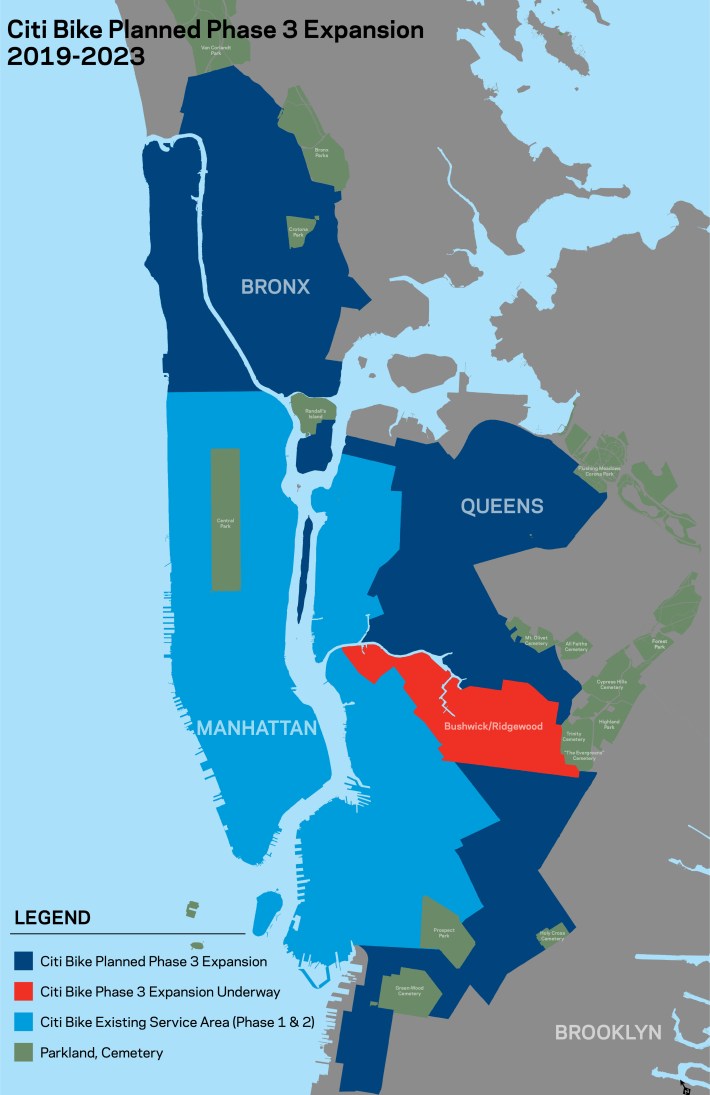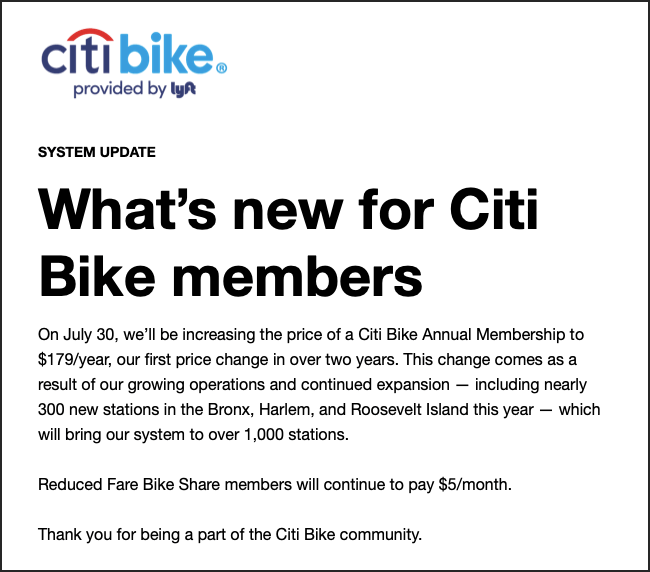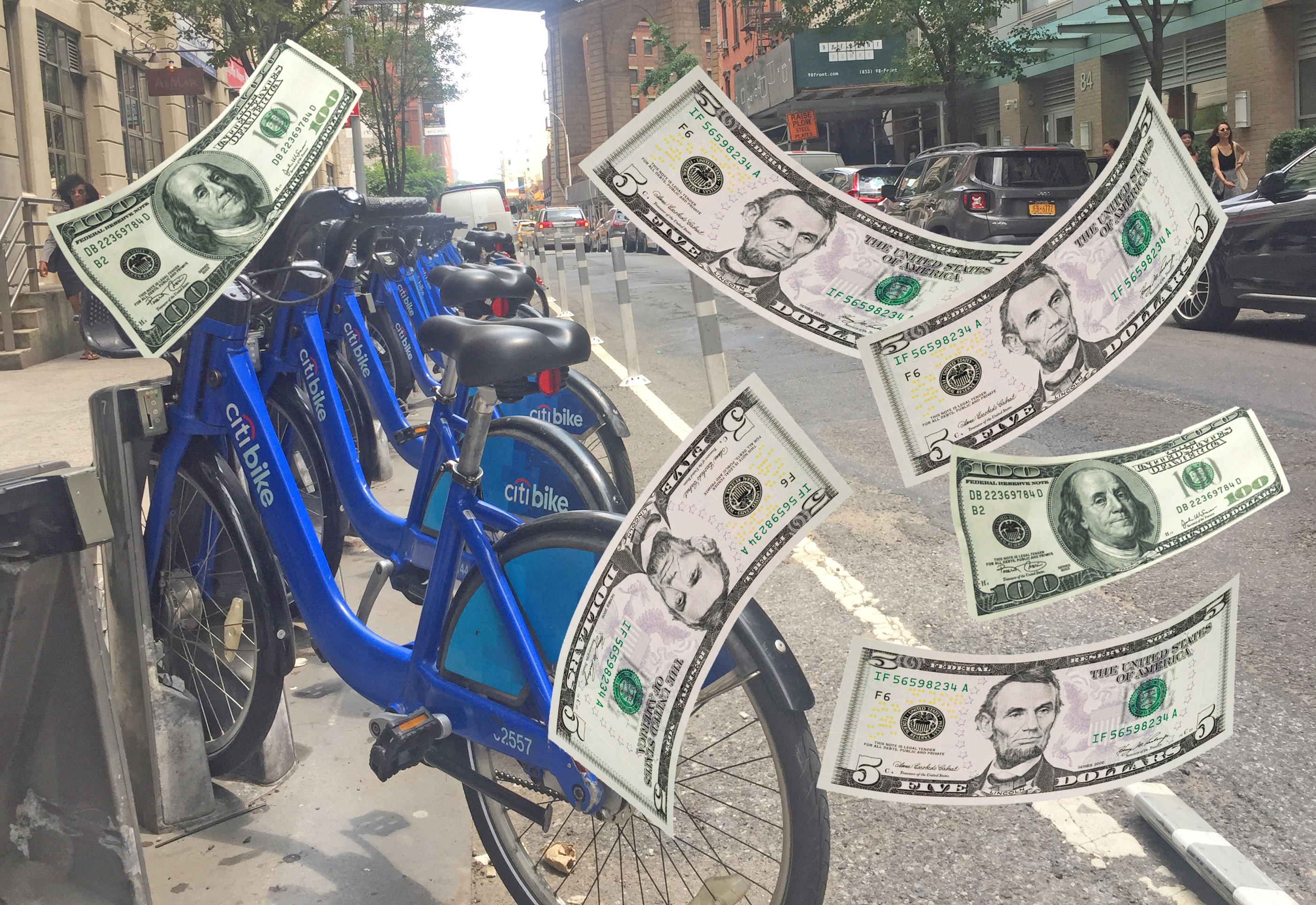Citi Bike needs more in the bank.
The city's privately operated bike-share system will raise its annual membership fee by $10, to $179, starting at the end of July, Streetsblog has learned. The Lyft-owned company's Reduced Fare Bike Share program — which provides $5 monthly memberships for public housing residents and recipients of food stamps — will remain unchanged. That program is under-written by Healthfirst.
The 6-percent fee hike is the first increase since March, 2018, but it comes at a particularly difficult time, given the system's expansion into areas with lower median incomes than the current Citi Bike zone, plus a need to encourage more cycling as millions of New Yorkers will be reluctant to use public transit in the immediate post-coronavirus period.
Nonetheless, the de Blasio administration provides no public money to underwrite the annual fees of the bike share system, despite serving as many as 90,000 trips per day and playing an important role in the larger public transit network.

City Hall did not respond to an initial request for comment. But cycling advocates were concerned about the fee increase.
“At some point, high subscription rates will collide with expansion of the system into lower income parts of the city," Jon Orcutt of Bike New York. "We may indeed be past that point already. The city should take a look at bike share fare policies in major world cities and figure out an approach to maximize access.”
Orcutt added that the city should prepare for a worst-case scenario: if Lyft, which suffered massive layoffs in April, is unable to meet its obligations.
But a company spokesperson said the company is not in any deep financial danger — and the fee increase merely reflects the higher cost of running a system that is expanding its footprint. Citi Bike will reach roughly half of the Bronx and all of Upper Manhattan sometime in 2021, part of a larger expansion that will grow the system's footprint in Queens and Brooklyn through 2023.
"We’re committed to investing in Citi Bike and bringing affordable, reliable transportation to more New Yorkers," the spokesperson said. "This modest increase supports our growing operations and expansion to serve more communities in the Bronx and Upper Manhattan and add thousands of ebikes."
Even at $179 a year, the cost of a Citi Bike membership, with unlimited rides on 15,000 thousand non-electric bikes, is still less than two months on an unlimited MetroCard, which is $127 per month. The system will comprise 4,000 electric assist bikes by the end of this year. Those bikes can be rented with an additional fee.
The reference to the subway was not lost on Transportation Alternatives, which turned the focus on the mayor's failure to subsidize Citi Bike, even as he continues to pour money into his ferry system.
"If the mayor saw Citi Bike as part of the transit system, this [increase] might not be necessary. But he doesn't, so it is," said TransAlt spokesman Joe Cutrufo. "At a time when people are seeking alternatives to crowded trains, and especially when overnight subway service is non-existent, then hopefully this fare increase will help speed up the expansion of Citi Bike into more neighborhoods."
Here's how Citi Bike told its members today at around 4 p.m.







